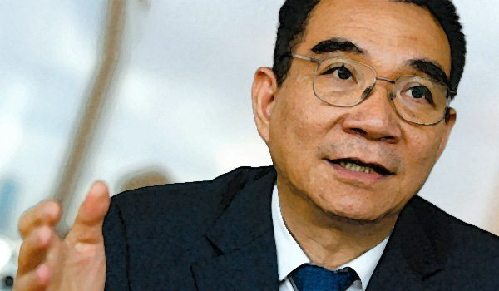China can raise the debt ceiling higher: economist
- By Chen Xia
 0 Comment(s)
0 Comment(s) Print
Print E-mail China.org.cn, March 9, 2016
E-mail China.org.cn, March 9, 2016
|
|
|
Justin Yifu Lin, a former World Bank chief economist and member of the Chinese People's Political Consultative Conference (CPPCC). [File photo by Xinhua] |
China can raise its debt ceiling above 3 percent as long as the money it borrows is well invested, said renowned economist Justin Yifu Lin in Beijing on Monday.
"China's debts have been mostly turned into assets, so the real debt-to-GDP ratio is not high," the former World Bank chief economist and senior vice president said at the sidelines of the annual session of the National Committee of the Chinese People's Political Consultative Conference (CPPCC), or the country's top political advisory body.
The debt ceiling refers to the maximum amount of money a government can borrow. Usually, it is measured as a percentage of gross domestic production (GDP) and is set below 3 percent in most countries.
However, things were different in China, Lin explained.
In developed countries, government debts are usually used to cover social expenditures, such as unemployment compensation and various aspects of social welfare, which will not increase productivity, but in developing countries, government debts are usually used to stimulate investments.
In the case of China, a large proportion of government debts have gone to infrastructure improvement, environmental protection and urbanization. In the short term, these investments could boost domestic demand and create new jobs. In the long term, they could increase productivity and transform into assets, said Lin.
Despite the downward pressure and the sluggish global economic environment, Lin remains optimistic about China's future. "As a developing country, China sees many promising investment opportunities, which will give it more room for maneuvering and will help it get rid of the current situation," Lin said.
On March 5, Chinese Premier Li Keqiang set the national GDP growth target for this year at 6.5 to 7 percent when addressing the opening of the annual session of the National People's Congress (NPC), the country's top legislature. He also unveiled the draft 13th Five-Year Plan that anticipates an average annual growth rate of above 6.5 percent from 2016 to 2020.






